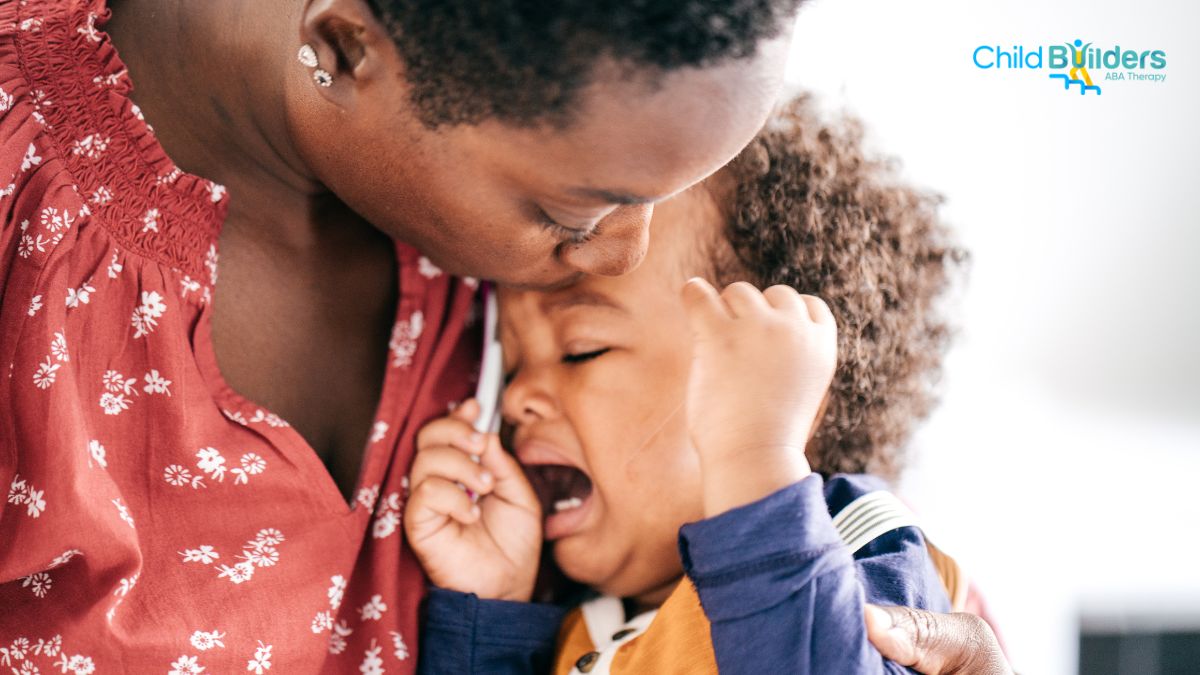Speech Delay vs Autism: Identifying Key Differences and Getting Help Early
.jpg)
Key Points:
- Speech delay and autism can both affect communication, but they have distinct developmental patterns and signs.
- Understanding the differences helps parents and caregivers seek the right evaluation and early intervention.
- Speech therapy and ABA therapy can both support communication, depending on the child’s needs and diagnosis.5
When a child isn’t talking as expected, it’s natural for parents to worry. Some children catch up on their own, while others may need specialized support. The challenge lies in figuring out whether it’s simply a speech delay or something broader like autism spectrum disorder (ASD).
Both conditions affect communication, but in very different ways. Speech delay vs autism is a common topic among parents searching for answers, especially when milestones don’t seem to line up. Knowing what separates the two can help families act early and get the right kind of help for their child.
This article explains the key differences, overlapping signs, and what steps to take if you’re unsure which applies to your child.
What Is a Speech Delay?
Speech delay refers to when a child’s ability to use spoken words lags behind what’s typical for their age. A child with a speech delay may understand language well but have trouble expressing themselves verbally.
For example, they might point or gesture to communicate instead of using words. They might use fewer words than their peers or struggle with pronunciation.
Common causes include:
- Hearing issues (such as recurring ear infections)
- Oral motor difficulties (problems moving the mouth, tongue, or lips)
- Environmental factors, like limited language exposure
- Developmental language disorder (DLD), which affects language structure and vocabulary
Speech delay doesn’t automatically mean a child has autism. In many cases, children with isolated speech delays develop social skills normally. They make eye contact, play with others, and show interest in people and activities.
%20(1).jpg)
What Is Autism Spectrum Disorder (ASD)?
Autism spectrum disorder is a neurodevelopmental condition that affects communication, behavior, and social interaction. While language delays are common in autism, they are just one part of a broader pattern of differences in how a child interacts with the world.
Children with autism may have challenges in:
- Understanding social cues, such as facial expressions or tone of voice
- Engaging in back-and-forth conversation
- Responding to their name or showing shared attention (like pointing to share interest)
- Adapting to changes in routine or environment
Autism can also come with repetitive behaviors, intense interests, or sensory sensitivities, such as being bothered by certain sounds or textures.
Unlike a simple speech delay, autism affects both verbal and nonverbal communication, as well as social development.
Speech Delay vs Autism: The Core Differences
At first glance, a young child with limited speech may look similar whether they have a speech delay or autism. However, the underlying causes and developmental patterns differ significantly.
Here’s how to tell the difference between speech delay vs autism based on key areas:
1. Social Interaction
Children with speech delay:
- Usually seek out attention and enjoy interacting with others
- Respond to their name and make eye contact
- Use gestures, facial expressions, and body language to communicate
Children with autism:
- May appear uninterested or unaware of others
- Often avoid or fail to maintain eye contact
- Might not use gestures naturally, such as pointing or waving
2. Nonverbal Communication
In speech delay, nonverbal skills are often strong. The child may compensate for speech difficulties by using gestures or showing emotion through facial expressions.
In autism, both verbal and nonverbal communication can be affected. A child may not point to indicate what they want or may seem indifferent to social cues.
3. Play Behavior
Children with speech delays usually engage in imaginative play, like pretending to cook or drive a car, and interact with peers during playtime.
Children with autism may prefer repetitive play, such as lining up toys, spinning wheels, or focusing intensely on parts of objects instead of the whole.
4. Repetitive Behaviors and Routines
This is a distinguishing factor in autism. A child with autism might repeat phrases (echolalia), flap their hands, or become distressed when routines change. These behaviors are uncommon in children with simple speech delays.
5. Response to Social Engagement
A speech-delayed child typically tries to connect with caregivers and reacts to praise, laughter, or shared attention.
A child with autism may not seek social engagement in the same way. They might prefer being alone or not notice when others are trying to interact.
When to Seek Evaluation
Parents are usually the first to notice something isn’t quite right. Trusting that instinct is important. If your child isn’t meeting communication milestones, a developmental screening can help clarify whether it’s a speech delay or autism.
You should consider professional evaluation if your child:
- Isn’t using words by 18 months or phrases by age 2
- Rarely responds to their name or shows little interest in people
- Has lost previously acquired words or skills
- Repeats the same sounds or phrases without clear meaning
- Doesn’t point to objects or show shared attention
A pediatrician or developmental specialist may recommend hearing tests, speech-language evaluations, and behavioral assessments to determine what’s causing the delay.
Can a Child Have Both Speech Delay and Autism?
Yes. Many children with autism also experience speech delays, but not all children with speech delays have autism. The difference lies in the presence of social and behavioral signs that extend beyond language.
Some children on the autism spectrum may eventually develop strong verbal skills with support, while others might rely on alternative communication methods such as sign language or AAC (augmentative and alternative communication) devices.
Understanding whether the child’s challenges are primarily speech-related or part of a broader developmental difference is key to providing the right interventions early.
Helping a Child with Speech Delay
When a child is diagnosed with a speech delay, speech therapy is often the first step. A speech-language pathologist (SLP) works on sound formation, vocabulary building, and articulation through play and structured exercises.
Parents can also support progress at home by:
- Talking and reading to their child regularly
- Naming objects during daily routines
- Using simple, clear sentences
- Encouraging the child to express choices verbally
- Responding positively to communication attempts, even if unclear
With consistent support, many children with speech delays catch up to their peers by preschool or early elementary years.
.jpg)
Supporting a Child with Autism
When autism is diagnosed, the approach is broader. Language therapy may still be part of the plan, but interventions often include behavioral and developmental support as well.
Applied Behavior Analysis (ABA) therapy is one of the most evidence-based treatments for autism. It helps children build communication, social, and daily living skills through positive reinforcement and structured learning.
Parents and therapists work together to:
- Encourage functional communication, verbal or nonverbal
- Teach social skills and emotional regulation
- Reduce challenging behaviors
- Create predictable routines that support learning
Early intervention can make a significant difference in long-term outcomes, especially when therapy is personalized to the child’s needs.
Getting the Right Diagnosis
Because speech delay and autism can overlap, a clear and accurate diagnosis is essential. Early identification allows children to access targeted therapies that promote progress in communication, behavior, and learning.
A multidisciplinary evaluation often includes:
- Developmental screening by a pediatrician
- Speech and language assessment
- Autism-specific behavioral evaluations
- Observations of play, social interaction, and responses to cues
The earlier families pursue evaluation, the better the chances of effective intervention and developmental improvement.
Every Child Communicates Differently
Every child develops at their own pace, but when speech or social skills seem delayed, it’s worth taking a closer look. Understanding the distinctions between speech delay vs autism helps families seek the right support early on.
Whether it’s a mild delay or signs of autism, timely action can lead to real progress in communication and confidence. The goal is not just to help a child talk, but to help them connect and thrive.
If your child’s communication or behavior suggests something more than a speech delay, professional help can make a difference. Child Builders ABA offers personalized ABA therapy in Rhode Island and Massachusetts to help children with autism build meaningful communication and life skills.
Our therapy programs at Child Builders ABA focus on each child’s unique strengths, promoting growth through evidence-based, compassionate care. Whether your child is newly diagnosed or you’re seeking ongoing support, we can guide your family through every step of the process.
Reach out today to learn how ABA therapy can help your child communicate more confidently and live a fuller, happier life.





































































































